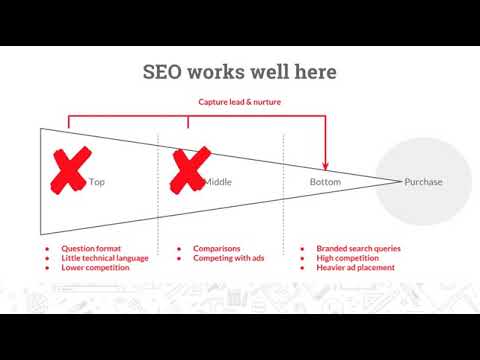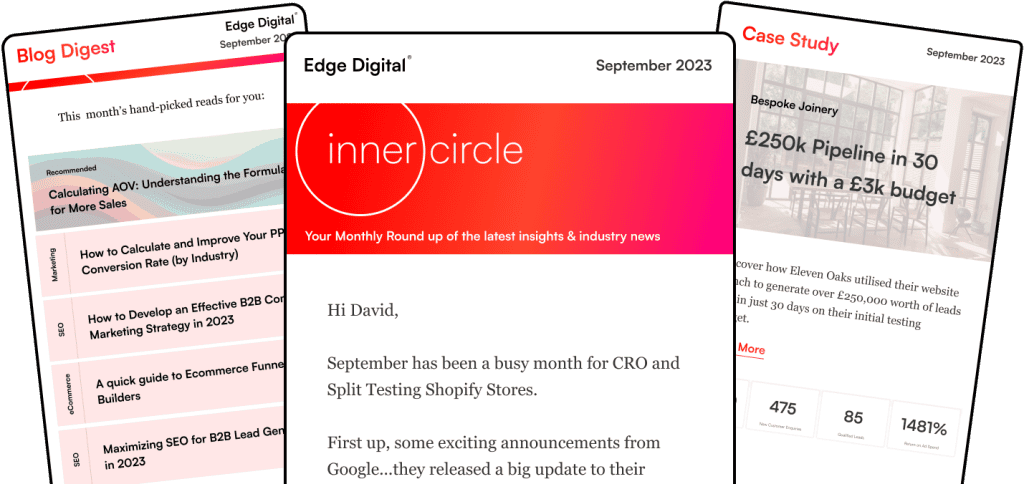In the competitive world of B2B marketing, capturing high-quality leads is a top priority. But how do you ensure your efforts are driving the desired results? Enter the power of SEO! Search engine optimization (SEO) is a proven strategy for maximizing lead generation, driving organic traffic, and increasing brand awareness. Yet, many businesses still struggle to harness its full potential in their B2B marketing efforts.
Creating high-quality, informative, and relevant content is crucial to attract organic traffic and build trust among potential customers.
In this blog post, we’ll explore the ins and outs of maximizing SEO for B2B lead generation in 2024. We’ll delve into the importance of SEO in driving quality leads and building brand awareness, effective keyword research, on-page and off-page optimization, content marketing, and how to monitor and analyze your B2B SEO performance. By the end of this post, you’ll have a solid understanding of proven strategies to capture more leads and stay ahead of the competition.
Key Takeaways
- SEO is essential for modern B2B lead generation, driving quality leads and building brand awareness.
- Effective keyword research, leveraging off-page SEO strategies, creating optimized content and utilizing analytics tools are key to successful B2B SEO efforts.
- Measuring ROI and conversion rates helps businesses optimize their strategies for better results.
The Importance of SEO in B2B Lead Generation
In the modern digital realm, B2B lead generation heavily relies on SEO. It helps businesses target users actively seeking their products or services, making it an indispensable marketing strategy. One might ask, what sets SEO apart from other marketing channels? Well, it’s simple – SEO generates high-quality leads by enabling businesses to rank higher on search engine results pages (SERPs), thus bolstering brand recognition and attracting more organic traffic.
A well-rounded SEO strategy for B2B lead generation considers various aspects like:
- Keyword research
- On-page optimization
- Off-page strategies
- Content marketing
Monitoring and analyzing B2B SEO performance is equally vital, as it helps gauge the efficacy of these strategies and measures the return on investment (ROI) and conversion rates.
How SEO Drives Quality Leads
SEO drives quality leads by optimizing website content for keywords with higher transactional search intent. For instance, by targeting transactional keywords that suggest the potential for purchase, businesses can prioritize their SEO efforts and ultimately generate high-quality leads.
So, how does SEO attract potential customers to a B2B website? PPC ads, blogs and social posts are great for grabbing visitors’ attention at the top of the funnel. They are effective marketing channels to get people to your website. Moreover, optimizing SEO content with relevant keywords and keyphrases commonly used by the target demographic can help draw potential customers.
Tailoring content to meet the needs and interests of the target audience allows businesses to create influential content that transforms website visitors into customers across various stages of the sales funnel.
Building Brand Awareness through SEO
Building brand awareness through SEO involves:
- Creating content that is pertinent to the intended audience and offers them value
- Optimizing on-page elements like meta titles and descriptions, as well as content structure and keyword usage
- Implementing off-page strategies such as guest posting, outreach, and local SEO to further enhance online visibility.
Creating content that aligns with your audience’s preferences and needs can enhance lead capture and overall marketing performance. The key to producing content that is advantageous to SEO lies in striking a balance between relevance and engagement, while also optimizing for search engine algorithms.
With a well-executed SEO lead generation strategy, businesses can significantly boost their online presence, attract potential customers, and ultimately, generate leads to drive more sales.
Conducting Effective Keyword Research for B2B SEO
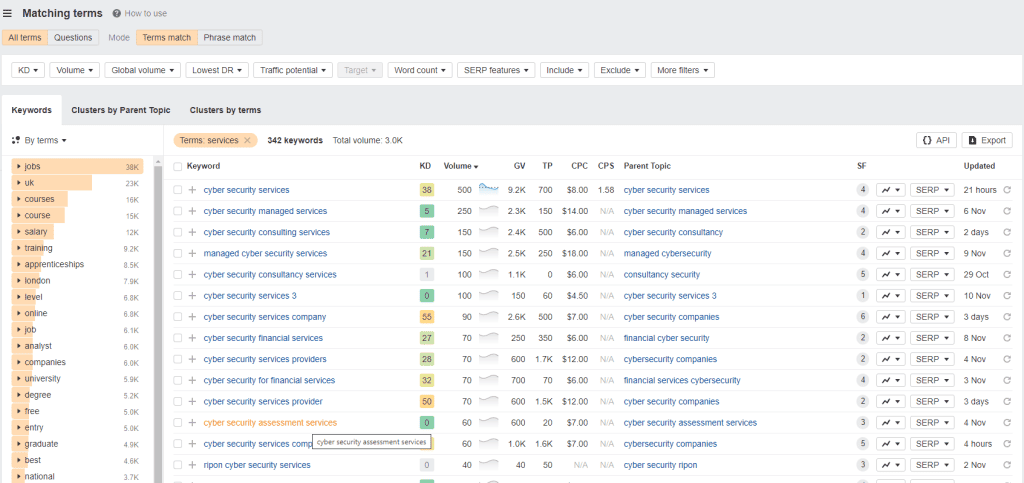
The foundation of B2B SEO is keyword research, which assists businesses in identifying the specific terms their target audience uses when searching for their brand’s related products or services. Understanding search volume helps in capturing a significant number of relevant leads.
Effective keyword research helps businesses appear on search engine results pages for relevant search queries, attracting qualified leads ready to engage with the brand.
But how can one conduct effective keyword research for B2B SEO? The answer lies in identifying long-tail keywords and analyzing search intent.
Long-tail keywords are:
- More specific and less competitive than other keywords
- Allow businesses to target niche audiences
- Help businesses target potential customers at various stages of the buyer’s journey
- Ensure businesses reach the right people at the right time.
In addition to long-tail keywords, it’s crucial to analyze search intent, which involves understanding the context and purpose behind a user’s search query.
Utilizing Long-tail Keywords
Long-tail keywords are phrases that are typically longer and more specific, making them ideal for targeting niche audiences and driving high-quality leads. Targeting these keywords allows businesses to capture leads with a higher likelihood of conversion, given their proximity to the point of purchase and their specific intent.
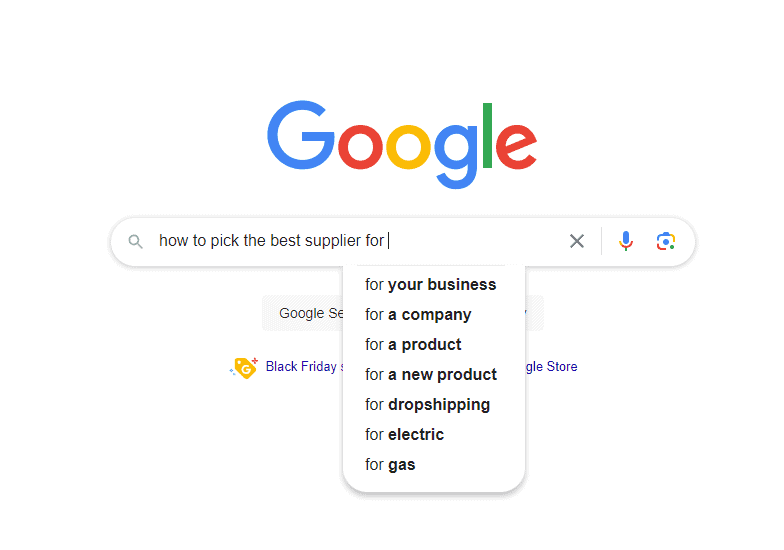
When constructing blog posts and other content, it’s essential to include targeted long-tail keywords that are pertinent to your business and industry. This will facilitate optimization of the content for search engine rankings and ensure it reaches the desired audience.
By utilizing long-tail keywords, businesses can not only drive more organic traffic but also increase the likelihood of capturing leads that convert into customers.
Analyzing Search Intent
Analyzing search intent is crucial for optimizing your B2B SEO strategy. It provides invaluable insight into the needs of your target audience and helps you develop content that is tailored to their stage in the buyer’s journey. By understanding the context of a user’s search query and the intent behind it, businesses can create content that resonates with their audience and aligns with their needs.
To analyze search intent, businesses can research the keywords used in the query, examine the search results, and assess the user’s needs. Comprehending a user’s search intent allows businesses to SEO-optimize their content and guarantee its visibility to the users. This, in turn, leads to higher engagement rates and a greater likelihood of conversion.
We would typically distinguish between 4 types of search intent:
- Navigational: The user wants to find a specific page (e.g., “CarTrackerPro login page”)
- Informational: The user wants to learn more about something (e.g., “best ways to deter car thieves”)
- Commercial: The user wants to do research before making a purchase decision (e.g., “best car tracker”)
- Transactional: The user wants to complete a specific action, usually a purchase (e.g., “buy car tracker system”)
Optimizing On-Page SEO for B2B Lead Generation
Optimizing on-page SEO is a critical component of B2B lead generation. By targeting a set of keywords and optimizing various on-page elements, businesses can ensure their content ranks high in search engine results and captures the attention of potential customers. Some essential on-page factors include:
- Meta description optimization
- Structuring and labeling page elements with H-titles
- Assigning image attributes
- Creating internal links
- Optimizing page experience
To optimize on-page SEO for B2B lead generation, businesses should focus on crafting engaging meta titles and descriptions, and structuring content for readability. This enhances user experience and boosts search engine rankings. By optimizing these on-page elements, businesses can ensure their content is not only visible to their target audience but also encourages them to engage and ultimately convert into customers.
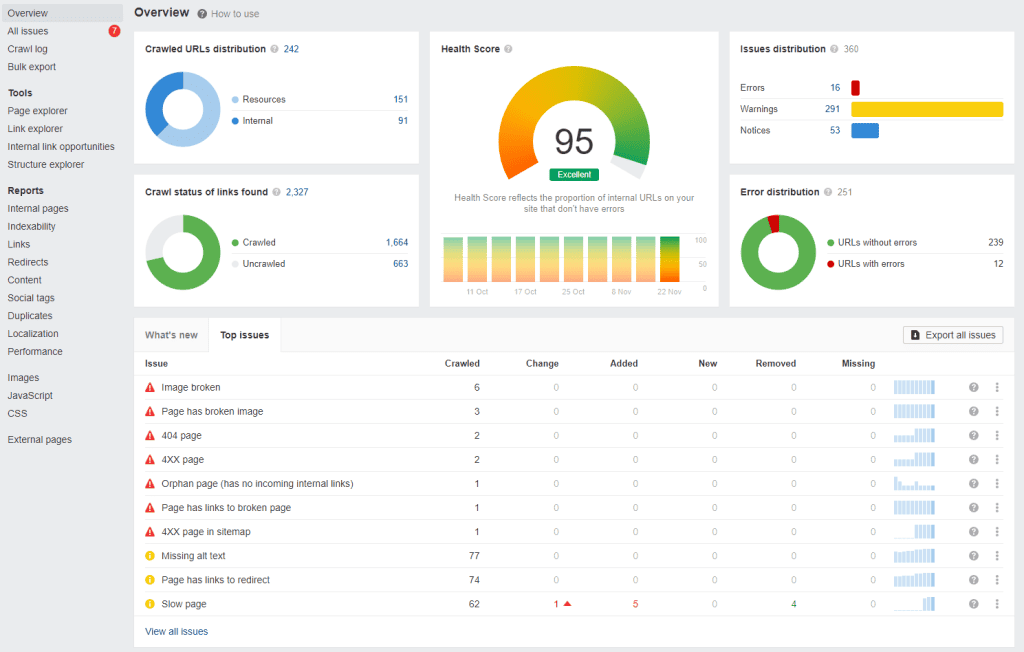
Crafting Compelling Meta Titles and Descriptions
Meta titles and descriptions are HTML elements that provide a concise overview of a web page’s content. They are utilized by search engines to comprehend the content of a page and to display it in search engine results. Engaging meta titles and descriptions can encourage clicks and improve search engine rankings, making them an essential aspect of on-page SEO.
When constructing meta titles and descriptions, it is essential to make them engaging and include target keywords. Here are some tips to follow:
- Titles should be succinct and descriptive.
- Descriptions should be informative and include pertinent keywords.
- Companies can boost their search engine results visibility and draw in potential customers by creating engaging meta titles and descriptions.
Structuring Content for Readability
Structuring content for readability is essential in optimizing on-page SEO for B2B lead generation. Headings, subheadings, and bullet points can be used to break up the content, making it easier for users to read and engage with the information. As John Mueller, a Google Webmaster Trends Analyst, stated, “A heading serves as a prominent indicator of the topic of the section”.
Enhancing readability and user experience on web pages is possible by structuring content with headings, subheadings, and bullet points, increasing the likelihood of user engagement and content sharing. This, in turn, leads to higher search engine rankings and increased visibility in search results.
Proper content structure not only enhances user experience but also helps search engines better understand the content of a page, ultimately contributing to the success of B2B SEO efforts.
Leveraging Off-Page SEO Strategies for B2B Lead Generation
Off-page SEO strategies play a significant role in B2B lead generation. By acquiring links from external websites that direct to your domain, businesses can increase their online visibility and authority. Some effective off-page strategies include guest posting, outreach, and local SEO, all of which can help businesses build authority, improve online visibility, and generate more leads.
Creating content for other websites and blogs, along with building relationships with industry influencers, constitutes guest posting and outreach. These strategies help businesses acquire high-quality backlinks and boost their online presence.
Local SEO, on the other hand, focuses on optimizing a business’s online presence for location-based searches, enabling them to target local audiences and generate more leads.
Guest Posting and Outreach
Guest posting and outreach are powerful off-page SEO strategies that can significantly enhance a business’s online visibility and reputation.
Benefits of guest posting and outreach include:
- Creating content for other websites and blogs allows businesses to secure high-quality backlinks, which signal trust and authority to search engines.
- Improved search engine rankings.
- Increased likelihood of capturing leads that convert into customers.
Additionally, guest posting and outreach can help businesses establish relationships with industry influencers who can promote their brand. By engaging with influencers on social media, participating in relevant conversations, and proposing collaborations on projects, businesses can foster valuable connections that ultimately contribute to their lead generation efforts and overall success.
Local SEO for B2B Businesses
Local SEO is a crucial off-page strategy for B2B businesses aiming to target local audiences. Businesses can bolster their location-based search visibility by optimizing website content for local keywords, generating local business listings, and fine-tuning their website for local search engine results.
Implementing local SEO strategies helps B2B businesses generate more leads by catering to the preferences and needs of local audiences. Moreover, businesses can leverage content marketing strategies, such as crafting valuable blog posts and utilizing various content formats, to further enhance their local SEO visibility.
By focusing on local SEO, businesses can effectively target local customers and boost their lead generation efforts.
Content Marketing and B2B SEO
Content marketing and B2B SEO go hand-in-hand, with valuable blog posts and diverse content formats driving organic traffic and generating leads. Developing engaging and informative content that caters to the needs and preferences of the target audience not only elevates search engine rankings but also captures more leads, thereby bolstering overall marketing efforts.
Utilizing different content formats, such as infographics, videos, and podcasts, can cater to various audience preferences and improve overall content marketing efforts. Offering a diverse array of content types enables businesses to reach a wider audience, increase brand visibility, and maximize SEO performance.
The key to successfully executing content marketing for B2B lies within the strategy. We’ve put together a full guide on how to approach this here.
Creating Valuable Blog Posts
Creating valuable blog posts is essential in attracting potential customers and raising brand recognition. Focusing on creating engaging, informative content optimized for targeted keywords can increase organic traffic to a business’s website and boost its SEO rankings.

When constructing blog posts, it is crucial to concentrate on creating content that is captivating and relevant to the target audience. By offering valuable information, businesses can ensure that their content is read and shared by their target audience, ultimately leading to increased brand awareness and lead generation.
Utilizing Different Content Formats
In addition to blog posts, utilizing different content formats can significantly enhance content marketing efforts and B2B SEO performance. By offering a variety of formats, such as:
- Infographics
- Videos
- Podcasts
- Webinars
- Ebooks
Businesses can cater to the diverse preferences of their target audience and improve their overall content marketing strategy.
Considering the target audience, content purpose, and desired outcome is vital when developing content in various formats. Moreover, businesses must ensure that their content is optimized for SEO, regardless of the format, to maximize visibility and drive organic traffic.
By diversifying their content marketing efforts, businesses can better engage with their audience and ultimately generate more leads.
Monitoring and Analyzing B2B SEO Performance

Keeping track of and analyzing B2B SEO performance is pivotal for pinpointing areas of improvement and assessing return on investment (ROI). By tracking website performance, keyword rankings, and user behavior, businesses can make data-driven decisions and optimize their strategies for better results.
In addition, measuring the ROI and conversion rates of B2B SEO efforts can help businesses understand the effectiveness of their strategies and make necessary adjustments to improve lead generation.
Valuable insights into website performance, keyword rankings, and user behavior, facilitating data-driven decisions, can be obtained from tools like Google Analytics, Ahrefs, Moz, and Google Search Console. Moreover, businesses can track the number of leads generated through SEO efforts, conversions, and estimate the revenue generated from those customers to determine the ROI and conversion rates of their B2B SEO campaigns.
Using Analytics Tools
For monitoring and analyzing B2B SEO performance, SEO analytics tools prove to be invaluable resources. Tools such as Google Analytics, Ahrefs, and Moz provide insights into website traffic, page views, bounce rate, and other relevant metrics to evaluate website performance. By tracking these metrics, businesses can identify areas of improvement and make necessary adjustments to optimize their strategies.
In addition to monitoring website performance, SEO analytics tools can be employed to track keyword rankings over time. This helps businesses determine which keywords are performing optimally and which require optimization. By leveraging these tools, businesses can make data-driven decisions and optimize their B2B SEO strategies for better results.
Measuring ROI and Conversion Rates
Evaluating ROI and conversion rates is key to understanding the effectiveness of B2B SEO strategies. Businesses can assess the success of their strategies by:
- Calculating the number of leads generated
- Tracking conversions
- Estimating the revenue generated from customers
- Determining the cost of the SEO campaign
By doing these calculations, businesses can calculate their ROI and assess the success of their strategies.
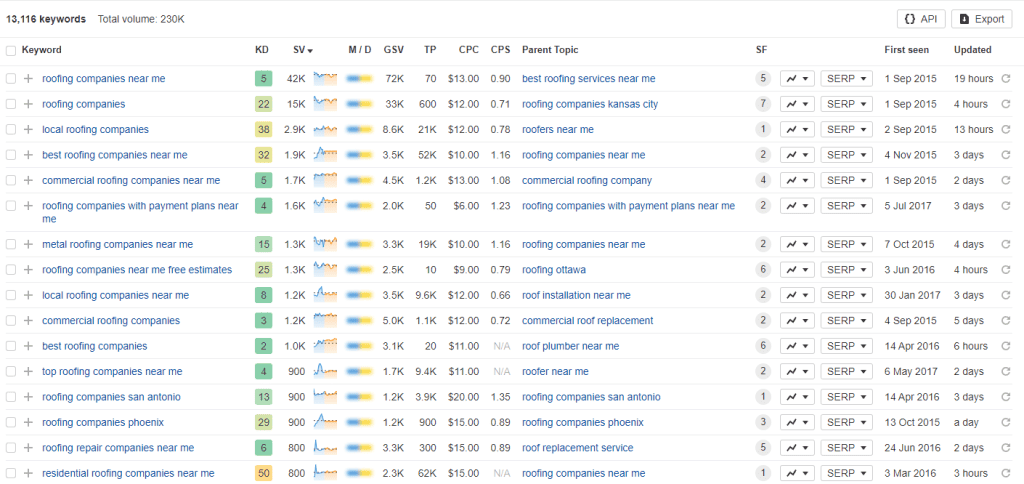
To calculate the conversion rate, businesses can divide the number of conversions by the number of leads and then multiply by 100. By monitoring and analyzing these metrics, businesses can make necessary adjustments to improve their B2B SEO efforts and generate more high-quality leads.
Understanding the ROI and conversion rates of B2B SEO campaigns not only helps businesses optimize their strategies but also provides valuable insights into the overall success of their marketing efforts.
Summary
In summary, maximizing SEO for B2B lead generation involves a combination of effective keyword research, on-page and off-page optimization, content marketing, and monitoring and analyzing performance. By implementing these strategies, businesses can drive quality leads, build brand awareness, and ultimately, increase their revenue.
Embrace the power of SEO in your B2B marketing strategy, and watch your lead generation efforts soar to new heights. With the right approach, dedication, and continuous optimization, your business can reap the benefits of SEO and stay ahead of the competition in the ever-evolving digital landscape.
Frequently Asked Questions
Is SEO good for lead generation?
SEO is an excellent lead-generation channel, as it helps bring you to the top of search results, builds brand trust and interest, and expands your reach over competitors. With the right strategy in place, SEO can generate high-quality leads and create awareness about your business.
Does SEO work for B2B?
SEO is an essential part of the B2B marketing funnel, helping to take prospects from complete unawareness all the way through to becoming clients. It is a proven way to drive growth and should be embraced as a key customer acquisition channel for B2B companies.
How can long-tail keywords be utilized in B2B SEO?
Long-tail keywords provide an effective way to target niche audiences and drive high-quality leads for businesses. By incorporating them into their B2B SEO strategy, companies can reach potential customers at various stages of the buyer’s journey.
What are some effective off-page SEO strategies for B2B lead generation?
Effective off-page SEO strategies for B2B lead generation include guest posting, outreach, and local SEO to build authority, improve online visibility, and generate more leads.
How can businesses optimize their on-page SEO for B2B lead generation?
Businesses can optimize their on-page SEO for B2B lead generation by crafting engaging meta titles and descriptions, structuring content for readability, and creating valuable blog posts to capture the attention of their target audience.
